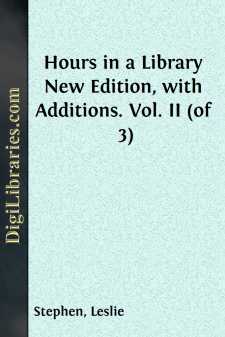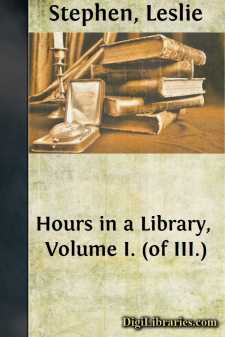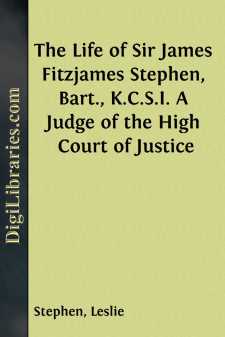Categories
- Antiques & Collectibles 13
- Architecture 36
- Art 48
- Bibles 22
- Biography & Autobiography 813
- Body, Mind & Spirit 141
- Business & Economics 28
- Children's Books 12
- Children's Fiction 9
- Computers 4
- Cooking 94
- Crafts & Hobbies 4
- Drama 346
- Education 46
- Family & Relationships 57
- Fiction 11826
- Games 19
- Gardening 17
- Health & Fitness 34
- History 1377
- House & Home 1
- Humor 147
- Juvenile Fiction 1873
- Juvenile Nonfiction 202
- Language Arts & Disciplines 88
- Law 16
- Literary Collections 686
- Literary Criticism 179
- Mathematics 13
- Medical 41
- Music 40
- Nature 179
- Non-Classifiable 1768
- Performing Arts 7
- Periodicals 1453
- Philosophy 64
- Photography 2
- Poetry 896
- Political Science 203
- Psychology 42
- Reference 154
- Religion 513
- Science 126
- Self-Help 83
- Social Science 81
- Sports & Recreation 34
- Study Aids 3
- Technology & Engineering 59
- Transportation 23
- Travel 463
- True Crime 29
Hours in a Library New Edition, with Additions. Vol. II (of 3)
by: Leslie Stephen
Description:
Excerpt
A book appeared not long ago of which it was the professed object to give to the modern generation of lazy readers the pith of Boswell's immortal biography. I shall, for sufficient reasons, refrain from discussing the merits of the performance. One remark, indeed, may be made in passing. The circle of readers to whom such a book is welcome must, of necessity, be limited. To the true lovers of Boswell it is, to say the least, superfluous; the gentlest omissions will always mangle some people's favourite passages, and additions, whatever skill they may display, necessarily injure that dramatic vivacity which is one of the great charms of the original. The most discreet of cicerones is an intruder when we open our old favourite, and, without further magic, retire into that delicious nook of eighteenth-century society. Upon those, again, who cannot appreciate the infinite humour of the original, the mere excision of the less lively pages will be thrown away. There remains only that narrow margin of readers whose appetites, languid but not extinct, can be titillated by the promise that they shall not have the trouble of making their own selection. Let us wish them good digestions, and, in spite of modern changes of fashion, more robust taste for the future. I would still hope that to many readers Boswell has been what he has certainly been to some, the first writer who gave them a love of English literature, and the most charming of all companions long after the bloom of novelty has departed. I subscribe most cheerfully to Mr. Lewes's statement that he estimates his acquaintances according to their estimate of Boswell. A man, indeed, may be a good Christian, and an excellent father of a family, without loving Johnson or Boswell, for a sense of humour is not one of the primary virtues. But Boswell's is one of the very few books which, after many years of familiarity, will still provoke a hearty laugh even in the solitude of a study; and the laughter is of that kind which does one good.
I do not wish, however, to pronounce one more eulogy upon an old friend, but to say a few words on a question which he sometimes suggests. Macaulay's well-known but provoking essay is more than usually lavish in overstrained paradoxes. He has explicitly declared that Boswell wrote one of the most charming of books because he was one of the greatest of fools. And his remarks suggest, if they do not implicitly assert, that Johnson wrote some of the most unreadable of books, although, if not because, he possessed one of the most vigorous intellects of the time. Carlyle has given a sufficient explanation of the first paradox; but the second may justify a little further inquiry. As a general rule, the talk of a great man is the reflection of his books. Nothing is so false as the common saying that the presence of a distinguished writer is generally disappointing. It exemplifies a very common delusion. People are so impressed by the disparity which sometimes occurs, that they take the exception for the rule. It is, of course, true that a man's verbal utterances may differ materially from his written utterances. He may, like Addison, be shy in company; he may, like many retired students, be slow in collecting his thoughts; or he may, like Goldsmith, be over-anxious to shine at all hazards. But a patient observer will even then detect the essential identity under superficial differences; and in the majority of cases, as in that of Macaulay himself, the talking and the writing are palpably and almost absurdly similar. The whole art of criticism consists in learning to know the human being who is partially revealed to us in his spoken or his written words. Whatever the means of communication, the problem is the same. The two methods of inquiry may supplement each other; but their substantial agreement is the test of their accuracy. If Johnson, as a writer, appears to us to be a mere windbag and manufacturer of sesquipedalian verbiage, whilst, as a talker, he appears to be one of the most genuine and deeply feeling of men, we may be sure that our analysis has been somewhere defective. The discrepancy is, of course, partly explained by the faults of Johnson's style; but the explanation only removes the difficulty a degree further. 'The style is the man' is a very excellent aphorism, though some eminent writers have lately pointed out that Buffon's original remark was le style c'est de l'homme. That only proves that, like many other good sayings, it has been polished and brought to perfection by the process of attrition in numerous minds, instead of being struck out at a blow by a solitary thinker. From a purely logical point of view, Buffon may be correct; but the very essence of an aphorism is that slight exaggeration which makes it more biting whilst less rigidly accurate. According to Buffon, the style might belong to a man as an acquisition rather than to natural growth. There are parasitical writers who, in the old phrase, have 'formed their style,' by the imitation of accepted models, and who have, therefore, possessed it only by right of appropriation....









